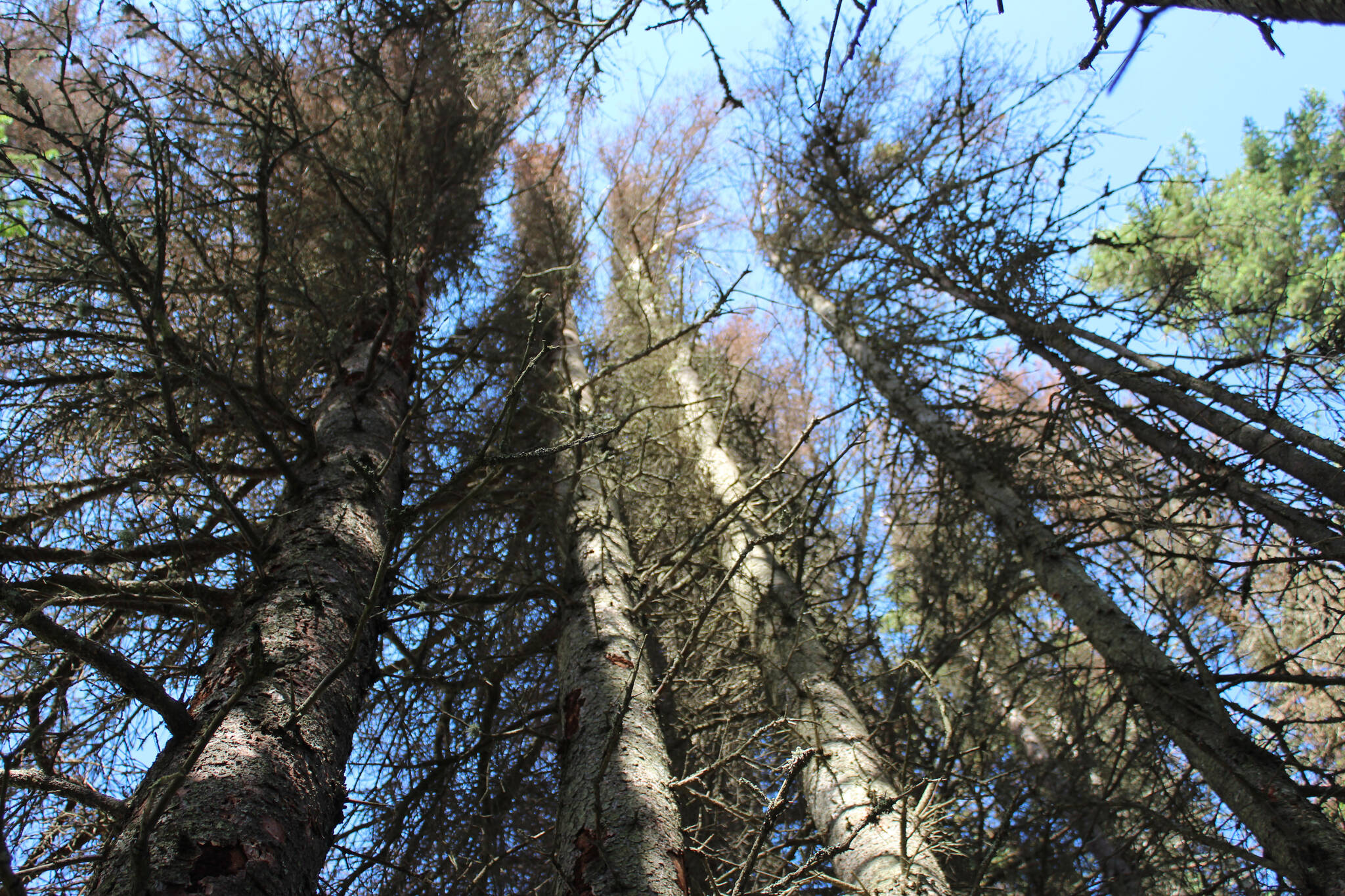Centennial and Swiftwater campgrounds in Soldotna will be closed to the public beginning Sunday while the city works to remove hazardous spruce bark beetle-killed trees. Between May 1 and May 20, all of Centennial Park, including walking trails and the campground, will be closed to the public.
The announcement comes less than a week after the Soldotna City Council approved more than $100,000 worth of contracts for spruce bark beetle hazard tree mitigation. In the face of delayed federal grant funds for the mitigation work, city council members gave city administrators the greenlight to start exploring other ways to get the job done.
The city applied in January 2020 for funds to remove beetle-killed trees and to conduct fire hazard mitigation work. That application, submitted to the federal Hazard Mitigation Grant Program through Alaska’s Division of Homeland Security and Emergency Management, described about $300,000 worth of proposed work across more than 375 acres of city land citing the wildfire risk of infected trees.
Other sites identified as being of particular concern include Soldotna Memorial Park, Aspen Park, Three Friends Dog Park and Parker Park.
Meetings between city administration and state employees who have helped facilitate the funds made clear the money would not be available in time for the city’s campgrounds to open, Soldotna City Manager Stephanie Queen has said. Soldotna City Council members earlier this month gave city administration the greenlight to start tackling trees infested with spruce bark beetles independently of the delayed grant money.
Soldotna Public Works Director Kyle Kornelis said Wednesday that the city used the directory prepared by the Kenai Peninsula Borough to help find local contractors. The city received responses from six firms with a wide variation in costs. Kornelis said the city still plans to pay for the work with grant funds, but also has the ability to use federal COVID relief funds for the project.
Kornelis said Wednesday that the city plans to retain about 50 cords of wood that park users at Swiftwater and Centennial will have access to for firewood. Because of the project’s accelerated timeline, however, many of the trees will be removed in their entirety and moved off-site.
As of 2020, more than 150,000 acres of forest had been impacted by spruce bark beetle infection on the Kenai Peninsula, including about 21,000 acres of forested land between Cooper Landing, Kenai and Soldotna, Truitt said.
Spruce bark beetles kill trees by boring through bark and feeding in a tree’s phloem, according to the National Park Service. Phloem is the innermost layer of the bark and transports compounds produced through photosynthesis to other parts of the tree.
By disrupting that process, beetles are able to starve the tree and cause it to die. That death is accelerated by a fungus brought by the beetles that prevents the movement of water through the tree.
A common indicator of beetle presence is boring dust, similar to sawdust, which collects at the base of the infected tree and in bark crevices. The dust is pushed out of holes in the bark where beetles enter and clear tunnels under the bark. Pitch tubes, or red globs on the surface of the tree bark, are seen where the tree has tried to push the beetles out.
Updates about the status of park and campground closures can be found on the City of Soldotna’s website at soldotna.org.
Reach reporter Ashlyn O’Hara at ashlyn.ohara@peninsulaclarion.com.

